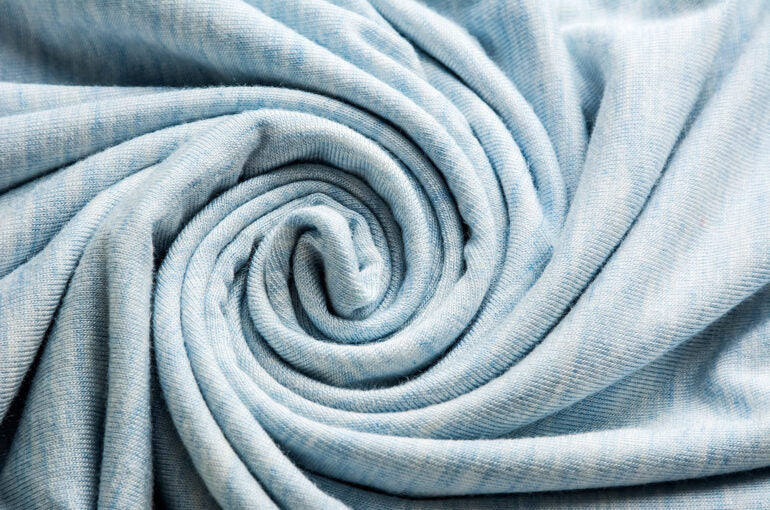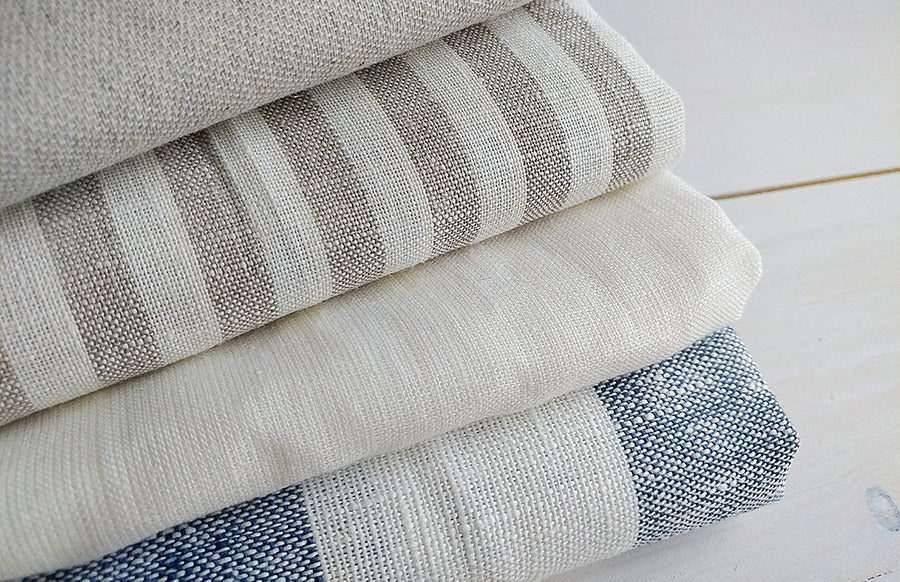Article: Why Bamboo is the Best Fabric for Your Newborn's Delicate Skin

Why Bamboo is the Best Fabric for Your Newborn's Delicate Skin
When it comes to taking care of their newborns, parents often spend countless hours searching for the perfect products that ensure comfort, safety, and health for their little ones. Among the myriad of baby products available in today's market, one component that stands out for its superior qualities is bamboo fabric. Renowned for its unparalleled softness and a host of other beneficial properties, bamboo fabric has become a popular choice for those who prioritize their baby's well-being.
The Unmatched Softness of Bamboo Fabric for Baby Skin
An Introduction to Bamboo Fabric's Texture
Bamboo fabric, derived from the bamboo plant, is incredibly soft, often described as similar to the feel of silk or cashmere. This softness is not just a superficial characteristic but stems from the unique properties of bamboo fibers themselves. Bamboo fibers are naturally smooth and round without any chemical treatment, which means they do not irritate the skin. For a baby, whose skin is up to five times thinner and significantly more sensitive than an adult's, this level of softness can make a substantial difference in comfort.
Why Softness Matters for Babies
A baby’s skin is not only more sensitive but also more prone to various conditions like dermatitis and rashes. Rough or coarse fabrics can chafe the skin, leading to discomfort and even long-term skin issues. Bamboo fabric’s natural softness ensures that even the most delicate areas, such as around the diapers, neck, or underarms, remain free from irritation. Moreover, babies are more likely to develop and sleep better when swaddled in soft, comfortable materials. Thus, choosing bamboo fabric for baby clothes, bedding, and accessories significantly contributes to their overall health and well-being.
Hypoallergenic Properties of Bamboo for Sensitive Skin
The Science Behind Bamboo's Hypoallergenic Nature
Many parents are unaware that bamboo fabric is naturally hypoallergenic, making it an excellent choice for babies with sensitive skin or allergies. Bamboo contains a natural substance called 'bamboo kun,' which possesses antibacterial and antifungal properties. This reduces the likelihood of bacteria growth, which can cause skin irritation and allergic reactions. The absence of these irritants makes bamboo fabric an ideal option for babies prone to eczema and other allergic conditions.
Comparing Bamboo Fabric to Other Fabrics
Traditional cotton fabric, while popular, often requires heavy pesticide use during its cultivation, and these chemicals can linger on the material even after manufacturing. These residues can be harsh on baby's skin, triggering allergic reactions or skin sensitivities. Conversely, bamboo is typically grown with minimal to no pesticides and, even when processed, retains its hypoallergenic properties. Synthetic fabrics, such as polyester, frequently contain artificial dyes and chemicals that can also provoke allergic reactions. Thus, bamboo fabric stands out as a superior choice in minimizing exposure to potential allergens.
Bamboo’s Natural Temperature Regulation for Optimal Comfort
How Bamboo Regulates Temperature
One of the striking characteristics of bamboo fabric is its ability to regulate temperature naturally. This comes down to the micro-gaps and micro-holes within bamboo fibers, which allow for better ventilation and air circulation. These natural properties enable bamboo fabric to stay cool in hot weather and provide warmth in colder conditions, ensuring babies remain comfortable regardless of the ambient temperature.
Ensuring Comfortable Sleep Year-Round
For babies, maintaining an optimal sleeping environment is crucial for their development and well-being. Overheating can disrupt sleep patterns and even lead to serious conditions like Sudden Infant Death Syndrome (SIDS). Likewise, feeling cold can make a baby wake up frequently, leading to crankiness and sleep deprivation for both baby and parents. Bedding, sleepwear, and swaddles made from bamboo help maintain an ideal body temperature. In warmer months, bamboo’s breathability keeps babies cool, and in winter, it acts as a natural insulator, retaining body heat. This dual functionality makes bamboo an all-season fabric and a vital component of a baby's wardrobe and crib.
Moisture-Wicking and Breathable Qualities of Bamboo Fabric
The Mechanism of Moisture-Wicking
Bamboo fabric is acclaimed for its exceptional moisture-wicking capabilities. This means that it can effectively draw moisture away from the skin and allow it to evaporate quickly. The micro-gaps in bamboo fibers enhance this property by providing ample space for water molecules to escape. For babies, who often experience periods of excessive sweating, especially around the neck and diaper areas, the moisture-wicking ability of bamboo fabric plays a crucial role in keeping them dry and comfortable.
Benefits of Breathability for Baby Skin
Good air circulation in fabrics is quintessential for preventing rashes and maintaining skin health. Bamboo fabric's breathability ensures that air flows freely, reducing the risk of heat and moisture build-up. This breathability is particularly beneficial in preventing heat rash, a common condition in infants due to their underdeveloped sweat glands. Moreover, breathable fabrics keep the skin at a stable temperature, preventing chills and the formation of moisture-related skin irritations.
Examples of Bamboo Products Benefiting from Moisture-Wicking and Breathability
Consider bamboo swaddles and blankets. These items, due to their inherent moisture-wicking properties, can absorb sweat or spittle, ensuring that babies remain dry and comfortable throughout the night. Bamboo baby towels are another excellent example; they effectively absorb water post-bath while being gentle on the baby's skin. When it comes to clothing, bamboo onesies and rompers keep the baby fresh and comfortable, even in warmer climates or during active movements.
In conclusion, bamboo fabric offers a plethora of benefits that contribute significantly to a baby’s comfort and overall skin health. Its unmatched softness ensures minimal skin irritation, while its hypoallergenic properties make it an ideal choice for sensitive skin. The natural temperature regulation and excellent moisture-wicking and breathability attributes ensure that the baby remains comfortable across different environments and conditions. For parents seeking the best for their little ones, bamboo fabric stands out as a superior choice, bringing together nature’s best qualities to ensure optimal comfort and well-being for the most delicate and precious stages of life.

